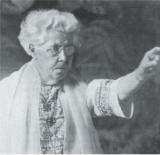Archives
The Scourage of Draconian Laws
Biswajit Chakraborty
On the 150th birth centenary of Rabindranath Tagore, we the ordinary people of the North East and Kashmir remember Tagore’s fight for human rights during the British Raj and salute his indomitable courage, his honesty, patriotism and his love and affection for the suffering millions. Let us take two or three examples which will suffice to prove these characteristics.
On the 18th of March 1915,the Defence of India Act was passed unanimously in the Legislative Council. Historian Dr. Ramesh Chandra Mazumder has written in the “History of Freedom Movement (Vol –II)” that in the specific matters covered by the rules, attention may be drawn to three clauses under which the Government could make rules. (See box item)
Salient features of the Defence of India Act 1915
|
 Rabindranath Tagore was against terrorism with or without uniform and always tried to hold human values high. It is needless to say that he stood against such a draconian law.
Rabindranath Tagore was against terrorism with or without uniform and always tried to hold human values high. It is needless to say that he stood against such a draconian law.
Rabindranath was deeply hurt when Mrs. Annie Besant was booked under this Act. He wrote in a letter “……. Possibly there is such a thing as political exigency, just as there may be a place for utter ruthlessness in war but as a man, I pay my homage to those who have faith in ideals and therefore are willing to take all other risks except that of weakening the foundation of moral responsibility.”
|
Annie Besant was a British social reformer,campaigner for women’s rights and a supporter of Indian nationalism. Though a British woman, she was not in tandem with British policies in India. |
We the ordinary citizens of the largest democratic country in the world understand that corruption in its multifarious ways breeds terrorism and terrorism brings with it counter – terrorism which does no good to the people. In this situation, the first casualty is human feelings and human values without which no civilization is in a position to last long. This use of brute force by persons with or without uniform eats into the vitality of the nation.
Dr. Dhirendranath Sen, an expert in the Constitutional, administrative and journalistic spheres remarks in the preface of his book ‘From Raj to Swaraj’, “We have a double standard of values. We have, that is, practitioners of the cult of organized coercion, who solemnly talk about Christian forbearance and Gandhian ‘ahimsa’, petty tyrants clothed in brief little authority who glibly preach democratic ideals, beneficiaries of monopoly capitalism and unearned profits, who loudly profess faith in a social freedom and welfare states. Thus, a sort of, what I call, double entry book – keeping is encouraged and maintained in the body polity.”
And so in today’s India, we find the Armed Forces Special Powers Act or the AFSPA which is in force in parts of the North East region and Kashmir. To make democracy healthy and strong, those who rule have the right to declare a part or the whole of any state ‘disturbed’ and to form a ‘unified command’, hand over the area to the army and act according to the diktat of the army which is armed with the AFSPA as a license to kill.
According to this Act, in a ‘disturbed’ area an NCO or any other person of the security forces having the equivalent rank has the power to fire upon or otherwise use force even to the extent of causing death against any person who is in contravention of any law against ‘assembly of five or more persons’ or who is in possession of deadly weapons. To arrest without warrant and with the use of ‘necessary’ force, anyone who has committed certain offences or is suspected of having done so. To enter and search any premises in order to make such arrests and so on and so forth. It is interesting to note that according to this Act, army officers have legal immunity for their actions.
We have every reason to believe that if Rabindranath Tagore were alive today, he would have definitely stood against this barbarous Act as he did against the Defence of India Act. He would have also expressed solidarity with Irom Sharmila Chanu and demanded the repeal of this Act.
The Vernacular Press Act of the British Raj was brought into action with an aim ‘To muzzle the vernacular newspapers which spread the message of nationality and the newly awakened sense of political consciousnesses. Many protest meetings were held against this Act and one of the prominent speakers in these meetings was none other than Rabindranath Tagore.
The Central Government and State Governments are spending crores of rupees to observe the 150th birth anniversary of Rabindranath Tagore but at the same time the Government of Ibobi Singh in Manipur has imposed restrictions to snatch away the freedom of print and electronic media.
Before his death, Rabindranath Tagore felt that India would sooner or later be liberated from the yoke of foreign rule. Sounding a warning, the poet, however, had cryptically said, “Let us hope there would not be any occasions to believe that we were better under British rule.” How prophetic Tagore was.
We, the people of the North East and Kashmir, nay, the whole of India do not need AFSPA. We need food, potable water, schools, health care, electricity, improved roads and communication, etc so that we can live with human dignity. But with a ruling class that is aggressive and arrogant, we are permitted to say:


